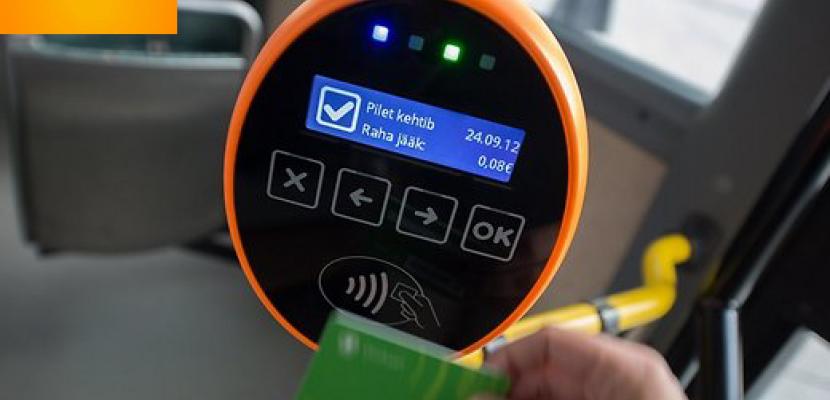Image

Tallinn smart city
Published on 30 March 2018

Estonia
Eesti
This is the good practice's implementation level. It can be national, regional or local.
About this good practice
Tallinn smart city is part of the Estonian Smart City Cluster. It mainly focuses on the opportunities ICT and new technologies could have in different actions and processes of the cities, and in developing energy saving and sustainable development solutions, as well as developing healthcare and social welfare in an efficient and cost effective way.
In Tallinn, the development of new technologies is seen as the best way to tackle the low-carbon challenge, with innovative solutions to reduce the carbon footprint of most of activities. Estonian Smart City Cluster is designed to create an innovative environment in cities, which will boost the competitive ability of companies by bringing together businesses, citizens, public authorities, R&D institutes and structures that support innovation. The cluster focuses on the creation, development (including product development) and exporting of innovative solutions taking in different spheres of urban life.
This is a joint project between the City of Tartu, ICT companies and infrastructure companies namely Tallinn Science Park Tehnopol, Tartu Science Park, Tartu University Hospital, AHHAA Science Center, Rakvere Smart House Competence Center, STACC, Tallinn University of Technology, Mobi Lab, Positium, Reach-U, Jiffi, Microsoft Estonia, Cityntel, Thinnect, GoSwift, PAKRI Science and Industrial Park, Autolevi, Flydog Solutions, Baltic Innovation Agency, Focus Research, Ridango, Hoiame Kokku Grupp, Net Group.
In Tallinn, the development of new technologies is seen as the best way to tackle the low-carbon challenge, with innovative solutions to reduce the carbon footprint of most of activities. Estonian Smart City Cluster is designed to create an innovative environment in cities, which will boost the competitive ability of companies by bringing together businesses, citizens, public authorities, R&D institutes and structures that support innovation. The cluster focuses on the creation, development (including product development) and exporting of innovative solutions taking in different spheres of urban life.
This is a joint project between the City of Tartu, ICT companies and infrastructure companies namely Tallinn Science Park Tehnopol, Tartu Science Park, Tartu University Hospital, AHHAA Science Center, Rakvere Smart House Competence Center, STACC, Tallinn University of Technology, Mobi Lab, Positium, Reach-U, Jiffi, Microsoft Estonia, Cityntel, Thinnect, GoSwift, PAKRI Science and Industrial Park, Autolevi, Flydog Solutions, Baltic Innovation Agency, Focus Research, Ridango, Hoiame Kokku Grupp, Net Group.
Resources needed
Total 1 200 000€, 50% of which comprises support from the ERDF.
Evidence of success
Tallinn smart city produces effective and easier way to use city services through co-created smart solutions. Some are based on contemporary technologies like City Planning Procedure Register, Web solution for Landscaping and Maintenance Works, Urban Planning Application or Public Events Management Portal AKIS. Others are real-life innovations like renovating old Soviet apartment buildings into energy-efficient houses, or creation of a district cooling system that uses residual heat in Tartu.
Potential for learning or transfer
One of the key factors for Estonia’s success is openness to innovation and willingness to try, test and develop new solutions together with the citizens. It has been proved that using living lab methodology for different co-creation projects is a good way of engaging citizens from a very early stage of development. This has also helped Tallinn smart city to develop solutions that really meet the needs of the citizens as the end users.
There is definitely room for other regions to learn from Tallinn smart city, but also for Tallinn smart city to learn from other nations’ and cities’ experiences in terms of implementing large scale pilots and communicating the best practices and lessons learned.
There is definitely room for other regions to learn from Tallinn smart city, but also for Tallinn smart city to learn from other nations’ and cities’ experiences in terms of implementing large scale pilots and communicating the best practices and lessons learned.
Further information
Website
Good practice owner
You can contact the good practice owner below for more detailed information.
Organisation
Estonian Smart City Cluster

Estonia
Eesti
Contact
European project officer